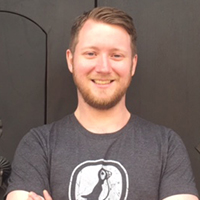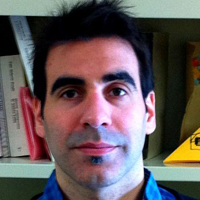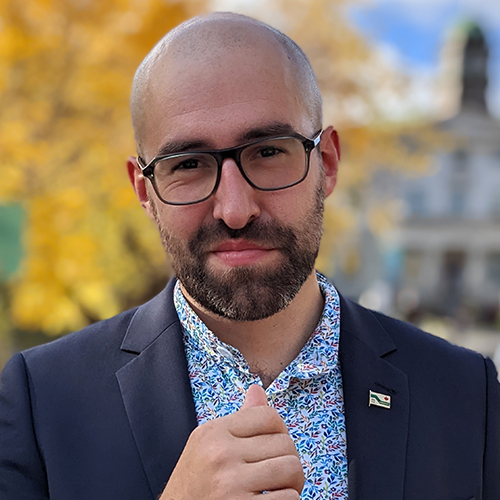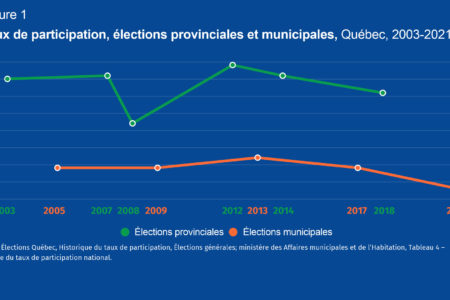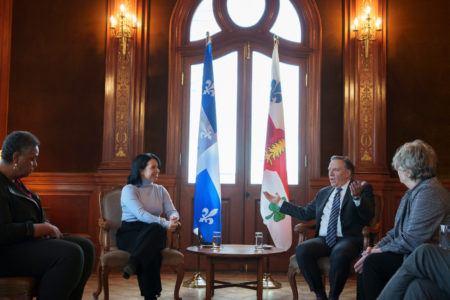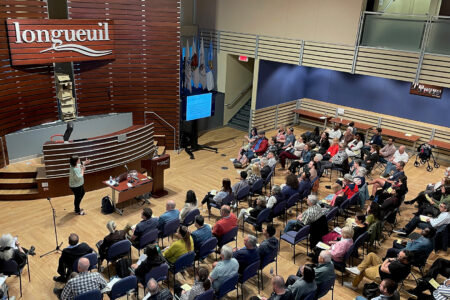
Getting citizens engaged with politics and mobilizing them to participate in elections is a significant challenge at any level of government. There is a great deal of concern with low levels of voter turnout in federal and provincial elections, but this challenge is even more pronounced at the local level, where turnout often falls below 50 percent of eligible voters. In addition, municipalities often face a shortage of candidates for mayor and council seats, especially in rural areas, which prevents many of them from holding competitive elections or even from filling the positions.
Candidate recruitment can be quite difficult in municipal elections; the November 2017 municipal elections in Quebec seem to have been no different. According to government statistics, of the 8,031 races for mayor, councillor and prefect positions across the province’s municipalities, a total of 4,471 (55.7 percent) were decided by acclamation, where a single candidate won office without competition. Although the number of candidates acclaimed increased slightly in 2017, the total number of municipalities that did not hold competitive elections declined from 246 in 2013 to 217. Moreover, 80 positions — 75 for councillor and 5 for mayor — remained vacant due to the inability to find even one candidate.
Clearly, in Quebec, as in other jurisdictions, the challenge of mobilizing participation in local elections is not only about getting people to the polls, it is also about getting them on the ballot. To better understand the motivations that lead citizens to become candidates in municipal elections, we conducted a survey of candidates during the 2017 Quebec municipal election campaign.
Our survey
Following the public release of the final list of candidates before the 2017 municipal elections, we reached out to those contesting mayoral and council races across the province by drawing on publicly available email addresses. Many candidates, or even entire teams of candidates (parties), did not have publicly available contact information, but we were able to reach 819 individuals across Quebec. Of these, 230 candidates participated in our survey, a response rate of 28 percent.
Our respondents came from 81 municipalities across the province. Nineteen candidates (8.3 percent) were campaigning on the island of Montreal. Our sample consisted of 154 men (67.0 percent) and 76 women (33.0 percent), a gender ratio comparable to that of all candidates in these elections.
Among our respondents, 177 candidates (77.0 percent) were contesting a council position, while the remaining 53 (23.0 percent) were running for mayor. Thirty-four (14.8 percent) respondents were acclaimed; the other 196 (85.2 percent) ran in competitive elections.
We asked candidates how long they had been involved in politics. Of the 192 who answered the question, 16.7 percent said this was their first experience. Another 29.7 percent had less than 5 years’ experience. About a fifth (21.4 percent) had been in politics for 5 to 10 years, and 32.3 percent had been involved for a decade or more.
Motivations and issues
What motivates candidates to get involved in municipal politics? Overall, responses to our survey suggest that candidates were primarily motivated to run by community-oriented, as opposed to personally oriented, considerations (figure 1). (Respondents could choose more than one motivation.)
A strong majority of respondents reported being motivated to get involved in municipal politics in order to contribute to their municipality. For example, most said they wanted to contribute to the advancement of their municipality (67.8 percent) or that they believed they had qualities that could serve their municipality (33.5 percent). For 16.5 percent, the motivation to run was feelings of frustration with the state of politics. A similar proportion (15.2 percent) indicated that running in the election was a “natural evolution” in their political careers.
We also asked candidates to reflect on the most important issue facing their municipalities (figure 2). We generated six themes out of the responses to our open-ended question: participation and engagement (for instance, concern over the quality of democracy and a lack of public involvement and interest in politics), infrastructure, transparency and communication within the municipal government, economic and development concerns, management of the municipality and other policy issues. The responses suggest that candidates were most focused on issues at the heart of democratic citizenship: participation, transparency and an overall disconnect between elected officials and their constituents.
To be sure, concrete policy issues also figured prominently: candidates often reported concerns with the state of the economy, infrastructure and transportation. However, the vast majority of comments we received pertain to a need to improve the way democracy works at the local level, particularly when it comes to engagement between local politicians and constituents.
While the significant participation gap — the low voter turnout in municipal elections compared with turnout for elections at higher levels of government — receives a fair share of attention, the difficulty of recruiting candidates at the municipal level has been somewhat neglected.
Our survey data suggest that candidates are mainly motivated to improve their municipality. Furthermore, the data show that a fair share of the candidates surveyed are cognizant of the broader challenge of mobilizing participation and engagement in municipal politics. Indeed, this was the primary concern shared by candidates in our survey.
Our work looked at why some people decide to become candidates. An important direction for future research is to examine why other people decide not to become candidates; such data could help to formulate structural solutions that would bring out more potential candidates. Meanwhile, election authorities, such as Élections Québec, might want to take inspiration from get-out-the-vote campaigns run by other organizations. Providing more information to citizens about the electoral opportunities at the municipal level — as well as about the need for candidates, in order to support democratic governance — could help reduce the numbers of uncontested races and fill some of the vacant positions.
Photo: Former Canadian Olympic sprinter Nic Macrozonaris, a candidate in the 2017 municipal election, putting up posters in Ste-Dorothée, Quebec. The Canadian Press, by Ryan Remiorz.
Do you have something to say about the article you just read? Be part of the Policy Options discussion, and send in your own submission. Here is a link on how to do it. | Souhaitez-vous réagir à cet article ? Joignez-vous aux débats d’Options politiques et soumettez-nous votre texte en suivant ces directives.







